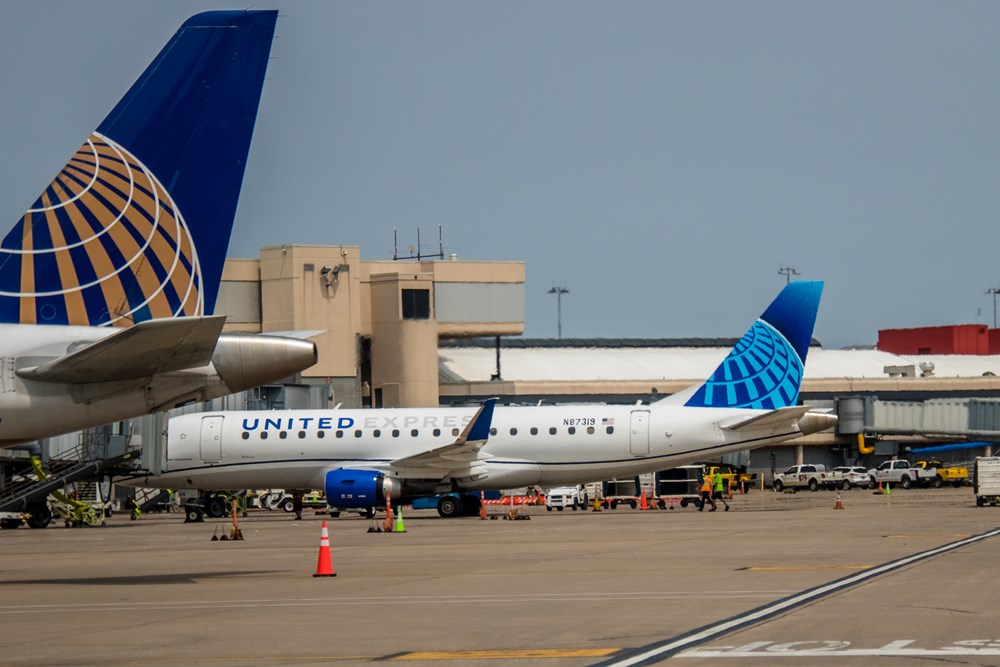US airlines are preparing for their busiest Independence Day travel period since the beginning of the global Covid-19 pandemic in early 2020.
The nation’s commercial jets are typically packed on the days before and after the 4 July holiday, a period that typically serves as a bellwether for the strength of the summer air travel season.
Chicago-based United Airlines said on 22 June that it expects to fly “nearly 5 million people” between 30 June and 9 July.

United’s number of bookings during the period are 12% higher than in 2022, and “nearly equal” to pre-pandemic levels, it says. “Friday, June 30 will be the busiest day… with more than 500,000 customers expected to fly United.”
US airlines have recently suffered widespread operational disruptions, but United insists its network ”is built to run well and recover fast, and we expect our operation to reflect that through the peak summer season”.
Fort Worth-headquartered American Airlines, meantime, also says 30 June will be its busiest day of the week, with 5,800 flights scheduled.
Because the holiday falls on a Tuesday this year, American expects “higher than usual demand the following weekend, suggesting more customers are taking the full week for their trip”.
“American expects to welcome nearly 3 million customers across more than 26,000 scheduled flights” between 30 June and 4 July – “a schedule that’s nearly 25% larger than our closest competitor,” the company says.
A third major US airline, Delta Air Lines, did not immediately respond to a request for information about its planned operations for the weekend.
Last summer, US airlines experienced major operational issues after consumers returned to air travel faster and in greater numbers than the industry had expected following the coronavirus crisis. Delays, cancellations and consumer complaints marred the travel season between June and September, which is the strongest for US commercial aviation.
In August, US Secretary of Transportation Pete Buttigieg sent a letter imploring the airlines to address “unacceptable” service, and the DOT launched an online “dashboard” showing the types of compensation specific US airlines provide to passengers affected by flight cancellations and delays caused by factors within airlines’ control.


























